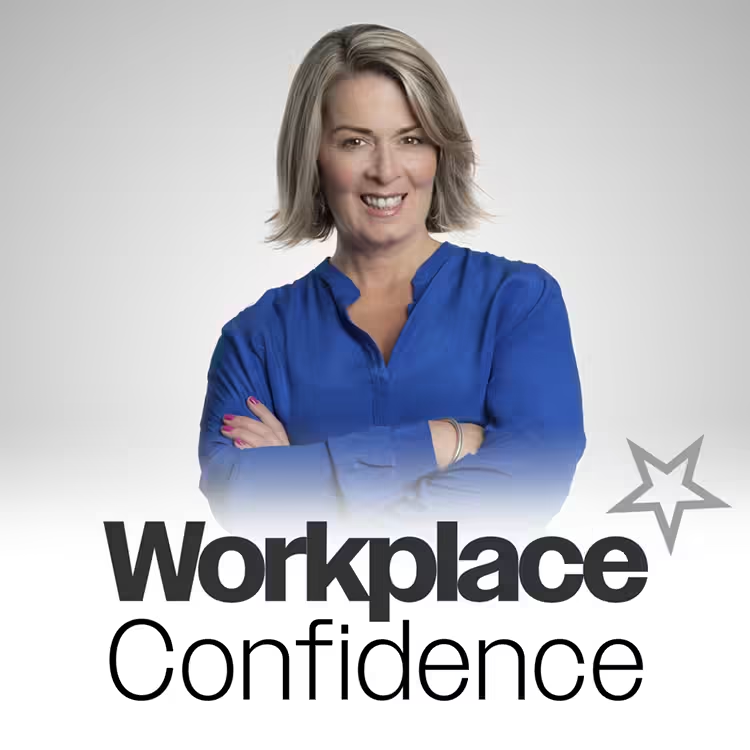
Leading HR with people, not policy – Maria Hawley
Episode 13: Workplace Confidence Podcast
Where people professionals share the great work they doLeading HR with people, not policy. Maria Hawley didn’t plan to stay at Fisher German for long. But 13 years later, she’s still there - now as Director of People - having helped lead the property consultancy through rapid growth, expansion and cultural transformation.
In this episode, Maria shares what it takes to build a people function from scratch, support 850+ employees and become a trusted voice on the board.
From setting strategy to overseeing health and safety, Maria’s role covers it all - and her story offers practical lessons for HR leaders ready to grow with their businesses.
Listen now
Scaling people in a growing business
When Maria joined, Fisher German had no HR team. She built the function from the ground up, supporting the company’s growth from 220 to over 850 employees, expanding from rural offices into major UK cities.
"I thought I was setting something up for a couple of years. Then we grew - fast. And I had the chance to shape it all."
She now sits on the leadership team and operations board, helping steer the firm’s five-year strategy and deliver on business goals through people.
Not just HR – a strategic leader
Maria heads a diverse team across:
- Core HR operations
- Learning and development
- Talent acquisition
- People experience
She’s also acting director of risk and compliance, health and safety, and facilities. Her work is hands-on, wide-ranging and always focused on impact.
Bringing your full self to work (and LinkedIn)
Maria is a standout example of how HR leaders can authentically appear on social media. Her LinkedIn posts blend personal experience with employer branding -drawing candidates in and giving a real sense of culture.
"I post about what I care about - connection, growth, having a life outside work. And it resonates."
One post, celebrating a challenge she set for herself - 12 fun events in 12 months - wasn’t just about self-improvement. It was about showing who she is beyond the job title.
Creating connections at work
Connection isn’t just a theme for her LinkedIn - it’s at the heart of how she leads. Whether it’s early careers events, learning days or informal team building, Maria champions a people-first culture.
She believes in meeting people where they are and making work a place of belonging.
"Nobody ever says, ‘I wish I spent more time at work.’ It’s about the people, the moments, the connection. That’s what matters."
Pressing post, even when it’s scary
Maria admits she was nervous the first time she shared something on LinkedIn during Covid. But now she’s a firm believer in using your voice.
"People hesitate because they’re scared of judgement. But if you want to grow your profile- and your business- you’ve got to be seen."
Her advice? Start with something honest. Be useful, be human, and press post.
Final takeaways for HR pros
Maria’s journey shows what’s possible when you:
- Build your function with the future in mind
- Stay connected to people (and purpose) as you scale
- Use social media as a tool to influence
- Don’t shy away from visibility - own your space
This episode is a must-listen for HR leaders ready to step up, get strategic and bring more of themselves to the table.
More episodes
Transcript: Leading HR with people, not policy - Maria Hawley
Maria Hawley (00:08)
Yeah.
That's right. So.
So we asked them what had interested them about sort of joining the business and they actually said, well, I'm a follower of your posts. And that gave me, it put the business on their sort of radar and it had given them an idea in terms of what we were like as a business, culturally. And that's part of the purpose of the of the post. mean, pretty much, you know, what you see is what you get with me. You know, those posts are me. Obviously I try not to be horrendously sort of
controversial and but I'm this is me I'm promoting the business I'm promoting you know myself the culture of the business I also do posts about the hospice because I think you know for hospice are really struggling charitable hospice are really struggling and I just also wanted to raise awareness of that.
P.H. (00:58)
It also speaks
about what you are as a person and it gives people a kind of whole view, doesn't it, in the mix. I think that's amazing. I think I might have seen that post as well, or one of your posts about Fisher German, because not that I was stalking you, obviously, but I was doing my background research and I was quite impressed, I have to say, and quite drawn to the vibe that you were kind of sharing, which was like, look, we've got great things.
Maria Hawley (01:04)
Yes, it does. Yeah.
P.H. (01:25)
for our people. People are our greatest asset. Not only do you get a really amazing leave package so it's like five weeks and then plus plus plus days you get your birthday off as well I love that I thought oh if I was looking for a job I'd apply I don't know what it is you do but I'm gonna apply so yeah it worked but tell me about that the leave package is that a real sort of draw for new people for talent coming to you?
Maria Hawley (01:37)
You didn't.
You
what do they say, you know, there's a war for talent and talent won and absolutely has it kind of sort of won and we, I work in a sector where resource is scarce. So you have to be competitive and you have to sort of think about it. But, you know, also we want to do the right thing by our people and you know, and it's really nice to have your, have to say to have your birthday off. We also give sort
of half a day on Christmas Eve and half a day on New Year's Eve depending kind of sort of where they they fall. And you know sort of again sort of during COVID times because everybody had been so brilliant we made the the three you know sort of the August bank holiday weekend a four-day weekend and we gave time off at sort of you know at Christmas because I think it's really important to value and recognise the
you know, the people that sort of working in the business and actually, you know, I'm not a fan of the, you know, people are our greatest asset because they're not assets, they're humans and I'm very much the, I don't really like a bit of a sheep dip approach. It's, you know, kind of sort of one size tends to fit one.
one size doesn't fit all, and talking about things that are important and meeting people where they are as opposed to where we are.
P.H. (03:10)
So less policy HR, more human touch individualized. How would that play out? You know, just a little mild challenge here. You've just got 800 or so employees. How might that play out with 8,000? Does it become more difficult? Have you considered that at all? Or do you not, don't worry about it because it's not on your plate right now.
Maria Hawley (03:13)
Yeah.
Yeah.
It is a challenge. mean, obviously we've gone from 220 to 800 and it is a challenge. We invest in development of our sort of leadership and our line managers and having them understand that, you know, a policy, I don't want to do management by manual. I don't want to do, you know, well, you must refer to this policy, et cetera, et cetera. You know, this is about meeting people in those moments that matter and
kind of where they are. So yes, we have sort of like every other organisation, we have some policies. But actually, you know, if you're a working parent and you are struggling, you know, why add a whole load of guilt onto people? Because they're already feeling guilty. They're already feeling torn between sort of work at work and home. Let's work with you. You know, so yes, you're going to have to kind of sort of take the morning off to, you know, sort of look after
your child, you know, how do we flex that in terms of the business getting, you know, some time back while I was kind of giving you some time, yeah.
P.H. (04:33)
Yeah.
I mean, never before has HR been in the news spotlight so much since COVID. And it's quite fascinating to watch how HR hits the headlines on a regular basis. It's really refreshing to hear from the most senior HR director in a reasonably large organization, big enough to call itself a medium-sized business. Is that right? Yeah.
Maria Hawley (04:49)
you
You got me, dear.
P.H. (05:03)
who's going, look, you've got to trust people and you've got to value them. And that trust aspect, when you hear the headlines about, you know, people who have run big organizations saying, get them back to work. It's like people are striking because of this, you know, and going, hang on a minute, my rights are being eroded here. I'm a parent or I'm a carer or, you know, I don't want to do that.
Maria Hawley (05:06)
Yes.
Yeah, one of our values is trust.
you know, that we sort of trust our colleagues to deliver their work. it's about ultimately it's about outcomes and output rather than your bottom warming the seat. you know, you can sit in the office and surf the net, which is what obviously sort of people think if you're sort of working sort of for me and in the business that we're in, we've always had our people out and about, they're, they're in a field.
P.H. (05:39)
Ha!
Maria Hawley (05:52)
they're looking at, you know, they're sizing up a property, we're grown-ups, we're not kids, you know, we have to trust each other that they're actually going to do the work and deliver it.
P.H. (06:02)
Yeah, it's an unfortunate frame in which the media has fallen into and it's a kind of either or, but most grown up people directors, human resource directors that I've met have said, well, it's a what works, what is business requirement, what is good for the business and our outcomes, not a kind of like go to work or stay at home and work from there. It's a very sort of binary.
Maria Hawley (06:09)
Yes.
Yeah.
Yes.
P.H. (06:30)
argument, isn't it, that's been sort of talked about.
Maria Hawley (06:31)
Yeah,
it's also, it's pitting one against the other. And that doesn't really need to happen. There's a place for everything.
P.H. (06:41)
Talking of pitting things against each other, at the current time of recording, Donald Trump has just arrived in the White House as the president of the United States of America. It's looking like diversity bad, no diversity programs good, right? And in the news, people are saying, right, we know we're gonna keep on with them or people are abandoning them and it's...
Maria Hawley (06:43)
Yep.
P.H. (07:02)
Are we looking at the start of a big trend, Maria? I know you can't predict the future, but do you feel that within HR and within the profession, this is something that people are grappling with as an issue? And maybe it's nothing that the UK needs to worry about. Maybe that's something that you'd agree with. I don't know. What's your view?
Maria Hawley (07:21)
on.
Trump's stance concerns me. As far as I'm concerned, we've moved forward. I am old enough to have been around in the 1980s. I saw the persecution of people who are gay and lesbian in connection with HIV. I saw the race riots and
And I just think we've moved, I know we haven't moved far enough, but we have done the, moved a long way. And I would hate the thought that we were going backwards into the days of persecution and the removal of rights and, you know, providing an equitable and level playing field. And whilst, you know, the kind of sort of...
The business that I'm in has had a very traditional sort of background because we generally, we know we started where we people were coming in from sort of the rural community. So I'm going to sort of say typically kind of sort of white middle class. But we've done a lot in our sort of journey over sort of the years to create an environment that creates belonging. You people feel like they belong and whether they want to bring their whole self or they want to bring some of their self to work, that's entirely their choice.
P.H. (08:32)
Mm.
Maria Hawley (08:40)
but in an environment that is respectful.
you know, that it's not toxic, that you don't, that you feel uncomfortable or you may feel that your progression is stymie, you know, or prevented. And that it just really concerns me both from a societal perspective, but also from an employer perspective. And I think, you know what, employers need to take a bit of a stand and say, this is not right.
P.H. (08:53)
Mm.
Maria Hawley (09:09)
This is really not right. And we are, you know, standing together for the rights of everyone in our workforce. Yeah.
P.H. (09:17)
That is quite a big decision, isn't it, to make,
especially if you are American-owned, for example. mean, Fisher German is UK-owned, isn't it? It's owned by British private business people, which is fortunate for your agenda and for your ability to say that. It's probably why I asked you, actually, because you don't have, you know, you've got a balanced view of this.
Maria Hawley (09:21)
Absolutely.
It is. Yes.
I approve. Yeah.
Yeah, I appreciate the challenge if you're owned by the US organization or you have a US parent company or, you are, across, spread across the world. But, you either take a stand or you don't. And I think it's, it's easy to, to kind of sort of go with the flow. But I think it's brilliant if you
take that stand and say no enough is enough.
P.H. (10:01)
It's great that Fisher German is a Stonewall Diversity Champion for LGBTQ+. That's fantastic. And I'll tell you what else is fantastic is that you won an award last year, didn't you? A couple of years ago, maybe last year. HR Director of the Year. Hello.
Maria Hawley (10:06)
Yes. Yeah.
Couple of years ago.
And that was really bizarre. Do know what I had come out of? I'd literally just been to the hospital for an appointment and I came out and a member of my team rang me and said, you've been shortlisted for this award. And I was like, I didn't even know. I said, I haven't applied for this award. Where's it come from? said, no, I applied for you, but I didn't tell you. And so she had applied on my behalf and made a lovely entry for me.
And it was the British HR Awards. And so it was the HR Leader of the Year. And so I went along never in my, you know, never ever thinking that kind of sort of that I would win.
P.H. (10:44)
What was the awards?
Wow.
Yeah, just going for a nice chicken dinner and a sit down, yeah?
Maria Hawley (11:06)
pretty much, sort of a bit of a breather from work. And I'd gone with my colleague Amanda and we thought, you know, we'll have a nice drink. We'll have a drink on the way home. But there were so many brilliant individuals in the room and I thought there's no way on earth and nobody could have been more shocked when my name was called out.
P.H. (11:25)
Amazing. tell me how that affected your levels of confidence on a personal level. Cause this is the Workplace Confidence podcast after all. And I do want to ask you about this, your values of trust and you know, valuing people and how that affects confidence. But while we're on it, just tell me about this awards win and how that boosted you. If you needed the boost, maybe you didn't.
Maria Hawley (11:32)
Yeah.
See ya.
No, always need the boost. It's an interesting one, isn't it? Because there was that, when I went up to get the award, I was like, are you sure you've made the right choice? you sure it wasn't sort of, that was my name on that award? Are you sure? Yeah.
P.H. (12:06)
You ask them, you sure? Or have you done a PWC and announced the wrong winner?
Maria Hawley (12:12)
pretty much because and then it was like okay well
the confidence or the lack of it that I feel inside probably doesn't marry with the award. And I didn't feel that I was doing anything sort of perhaps particularly special sort of to achieve the award. And it's really interesting. Before I came on the podcast, I was thinking about sort of confidence and it kind of waxes and wanes almost. So sometimes, you know, when something has gone particularly well, I think, you know what?
I'm good, but a lot of the time I'm probably thinking more like, I just need to do better. And I think that probably sometimes is a good driver because I'm always striving for, you know, to do better. How can we improve? What can we do better for our people? How can we be a better business? That sort of type of thing. So it works in the favour. But I think, yeah, sometimes.
it is difficult I think to marry the external perception sometimes with the nerves or the anxiousness that goes on inside. I think that happens for a lot of people.
P.H. (13:16)
Yeah.
Yeah, absolutely.
It's one of the reasons I'm so passionate about workplace confidence, because it's probably the only environment, the arena in which we have to display confidence, where we might not always be feeling it. And it doesn't seem to matter whatever level you are, it doesn't seem to matter what level you are. It might be that you're a junior new star or a senior executive director. It doesn't have to be a personal, private challenge.
Maria Hawley (13:24)
Yeah.
Yeah.
Yeah.
P.H. (13:48)
I think the more we talk about it, the more we deal with it, the more it becomes a kind of, yeah, that's how things are in life. You know, we are literally all making it up as we go along. And sometimes we feel unsure of that and sometimes it's okay. But as long as we're in it together and talking about it, it's going to be less of a burden.
Maria Hawley (14:05)
Yeah, I absolutely agree, definitely. you speak to other people, don't you, who you admire, who absolutely exude confidence and you think, wow, you're amazing. And then you have a chat with them and they sort of say, no, I'm quite sort of nervous. You know, I've got to stand up and speak in front of 100 people or I've got to or I've got to make a phone call. It could be anything, and the particular challenge sometimes is the,
P.H. (14:23)
or I've got to make a phone call. Yeah.
Maria Hawley (14:31)
The more difficult somebody feels that that conversation is going to be, the more the nerves and the confidence drops.
P.H. (14:38)
And the kicker is that we know it's our confidence, don't we? We know that if we could just get more self-belief, everything would be a lot better. So we're in this kind of conundrum of having to display it, needing more of it and feeling not quite sure of ourselves. How does that play out for your intergenerational employee base? Because you've got five generations under one roof.
Maria Hawley (14:42)
Yeah.
Yeah.
Yeah.
Yes.
P.H. (15:05)
Have they got different levels of confidence do you think? Are they displayed in different ways or are they all hunky-dory estate agents with clipboards? Yep, know exactly what I'm doing. Going out in the field, lay the pipe here, no problem. I'm just...
Maria Hawley (15:11)
You
Yeah.
Different, mean, yes, definitely sort of different generationally. think our, I know I'm going to sound very stereotypical, but our younger people are probably more confident in terms of asserting for what they want, advocating for what they want, whereas they are less confident about picking up a phone, you know, actually making a phone call. They'd far rather message, they'd far rather use Teams or email, in terms of their sort of interpersonal sort of communication.
Whereas our sort of older generations, we have people in the business who are within their 70s, will much prefer picking up the phone, having a face-to-face chat, conversation, et cetera. but are probably, and I would count myself in this probably generation, more of, I'll prove to you what I can do and then you'll show me what you can give me. Whereas I would probably
P.H. (16:13)
Yes.
Maria Hawley (16:16)
our younger generations are, know, show me what you're to give me and I'll prove to you what I can.
P.H. (16:20)
Yeah. I'm in the burnout generation with you. I'm like, yeah, I'll
show you what I can do and I'll burn out and I'll be back.
Maria Hawley (16:29)
very much so yeah I'll do everything and I'll speak all the time.
P.H. (16:32)
I've seen Melanie Griffiths
in Working Girl, I can do that.
Maria Hawley (16:35)
Absolutely, I could do everything.
P.H. (16:37)
Yeah, yeah.
This is a fantastic insight into your world, Maria, I have to say. I love the fact that you've got on top of social media and it's paying off for you on LinkedIn. I love the fact that you've got so much going on on a personal level with your employees. They must really enjoy being under your management, your directorship.
in order to have their birthday off and find their way. It's such a wonderful approach. Are there any threats to this approach, do you think, in the growth plans that you've got?
Maria Hawley (17:11)
I think one of the challenges so
When we were about 400, I knew everybody, knew absolutely everybody. And now we're at 800, I don't. And as we continue to grow, you lose touch, I think, with people but. One of the things that we do and our managing partner is equivalent of a chief executive, is that we do go around to all of the offices and we'll do that within a year, and we will sit and work.
working in the environment, A, because I don't want to be the HR person that turns up when something's gone wrong, or just turns up when something's gone wrong. So I go and I mingle and I chat, because I think also you get to know what the issues are, what's really important to somebody that's actually probably in the scheme of things, quite minor, and you can tweak it and you can make it work.
also in terms of not wanting to lose contact. So one month we meet with our mental health first aiders, and we get an idea in terms of a temperature gauge of the business and well-being of people in the business. And then the following month we have a group of representatives from around again from each office in which, we talk to them about, what's going on.
what's happening. We also give them a budget so they can arrange socials and interactions and we do charity events through them. while we've been talking I've just seen a message pop up of somebody they're having a cake competition and raising money for charity is sort of at the same time because we can't be in every office every day but it gives us a flavor and a temperature gauge in a
to our annual survey.
P.H. (18:59)
So how would you, mean the annual survey looks after itself in terms
of quantifying that data. How do you interpret the investigative approaches that you've taken through being a visible leader out on the road amongst your senior team, meeting with the mental health first aiders and the office, you know, representatives, how do you gather that and reflect upon that so it's more purposeful as it's, you know, otherwise it just becomes a bit of a chat doesn't it with your
Maria Hawley (19:21)
Yeah.
acres.
P.H. (19:24)
your
colleagues and your peers at your level.
Maria Hawley (19:27)
so that anecdotal data combined with our survey data, we use that to inform both our wellbeing plans, our social sort of plans and together with our
strategy. So if it's quite sort of clear that we have one particular office that may be struggling and sometimes that can be a lack of visible leadership or it could be that, actually that office just needs an update. It needs an absolute refresh
Sometimes it's the practical things that really frustrate people, i.e. the tea, coffee, toilets, parking, that sort of thing. Or sometimes it's really major things like quality of line management, the role, rewards, recognition, etc. And it's just feeding that all back into the plan. And in terms of the communication, one of things that we try and do a lot is
Our managing partner does a town hall every couple of months, know, so we can all log on and he talks about sort of where we are as a business, he's Really open he'll take lots of questions. So he was really honest in terms of where we are that direction That sort of type of thing combined with sort of regular updates. communication is two-way,
thank you. We used it. Yeah.
P.H. (20:46)
Again, you're making your people feel valued and
you've thought about, actually thought about them. know, out in the real world, you've actually given that some thought and you're caring for them. And I just see that as being incredibly useful for building one's confidence you know, I am wanted, I am cared for, I have a place here, which it speaks, it goes much further than many other things. And it's so simple to do. I'm surprised more people
Maria Hawley (20:52)
Yeah, yeah, yeah, yeah, yeah.
Yeah. Yeah.
P.H. (21:14)
More businesses don't approach things like this.
Maria Hawley (21:16)
And in those moments of matter and that sort of lack of sort of confidence, I'm just thinking of somebody who absolutely was really struggling. And we organised an external coach to provide some coaching around things, building their confidence, dealing with difficult situations. And we've done that so many times because I also think training is great.
But sometimes in confidence it's such a personal thing and sometimes it just relates back to things that have happened at a younger stage in your life and therefore, you know, a child
P.H. (21:55)
You're not going to talk
to your line manager about, you?
Maria Hawley (21:57)
you're not. But if you get the opportunity to go and talk to a coach and they can work with you in terms of what those issues might be, then absolutely. And I know that we have people still in our business because we took that approach with them because they didn't feel that they had to kind get up and go elsewhere, either to gain that confidence or to be dealt with as a human.
P.H. (22:21)
interested to see you up against like the big names of you know the conglomerates or the big organizations I referenced earlier who'd be like back to work all right I'd love to see you up against them and just evidencing that your approach has far more impact on individuals and therefore that your organization's ability to grow efficiently and effectively versus this sledgehammer to crack a nut Maria.
Maria Hawley (22:30)
you
I think...
Yeah.
in.
P.H. (22:46)
I'd love to see
that. Are you up for it? I'll organize a panel.
Maria Hawley (22:50)
Absolutely up for it. Completely
up for it. To credit to larger organisations, I appreciate the difficulties, particularly if you've got a parent company dictating to you, or you've got property empty and you want to put people back in.
P.H. (23:07)
Yeah. Or
you've grown up being one person who always, well, I always had to go into work. Why shouldn't these people, they must just be coasting at home. Yeah.
Maria Hawley (23:12)
Yes, absolutely. Yeah, absolutely.
You know, with your feet on the obviously watching the daytime telly and, you know, doing your washing it is, she thinks I wafted out. But I do think rather than.
P.H. (23:18)
Yeah.
Yeah. She's what your sister thinks, isn't it, that you do? Wafting, waft out, yeah.
Maria Hawley (23:33)
I think they just really need to seriously think about, if we want to keep people and resource is so short and talent is so short and we're...
P.H. (23:43)
and expensive
to replace.
Maria Hawley (23:44)
and expensive to replace and over 50 % of the UK workforce are looking for another job, why are you forcing people to back into literally a box because you think that life is going to be better because their bottom is warming the seat as opposed to actually being productive?

Finalist
Personnel Today
Learning and Development Supplier of the Year
2025

Finalist
Personnel Today
Learning and Development Supplier of the Year
2024

Finalist
Business Book Awards
Short Business Book
of the Year
2023

Finalist
Lloyds Bank Business Excellence Awards
Business Enabler
of the Year
2022






